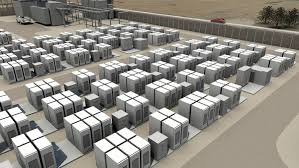
Breaking News
 Israel First Vs America First Conservatives
Israel First Vs America First Conservatives
 The COVID Vaccine DNA Bombshell They Tried to Hide | Exclusive with Dr. David Speicher
The COVID Vaccine DNA Bombshell They Tried to Hide | Exclusive with Dr. David Speicher
 Alarm Bells Going off EVERYWHERE, and Putin and China Smell Blood | Redacted w Clayton Morris
Alarm Bells Going off EVERYWHERE, and Putin and China Smell Blood | Redacted w Clayton Morris
 Ben Shapiro Joining CNN Exposes His REAL Scheme
Ben Shapiro Joining CNN Exposes His REAL Scheme
Top Tech News
 Goodbye, Cavities? Scientists Just Found a Way to Regrow Tooth Enamel
Goodbye, Cavities? Scientists Just Found a Way to Regrow Tooth Enamel
 Scientists Say They've Figured Out How to Transcribe Your Thoughts From an MRI Scan
Scientists Say They've Figured Out How to Transcribe Your Thoughts From an MRI Scan
 SanDisk stuffed 1 TB of storage into the smallest Type-C thumb drive ever
SanDisk stuffed 1 TB of storage into the smallest Type-C thumb drive ever
 Calling Dr. Grok. Can AI Do Better than Your Primary Physician?
Calling Dr. Grok. Can AI Do Better than Your Primary Physician?
 HUGE 32kWh LiFePO4 DIY Battery w/ 628Ah Cells! 90 Minute Build
HUGE 32kWh LiFePO4 DIY Battery w/ 628Ah Cells! 90 Minute Build
 What Has Bitcoin Become 17 Years After Satoshi Nakamoto Published The Whitepaper?
What Has Bitcoin Become 17 Years After Satoshi Nakamoto Published The Whitepaper?
 Japan just injected artificial blood into a human. No blood type needed. No refrigeration.
Japan just injected artificial blood into a human. No blood type needed. No refrigeration.
 The 6 Best LLM Tools To Run Models Locally
The 6 Best LLM Tools To Run Models Locally
 Testing My First Sodium-Ion Solar Battery
Testing My First Sodium-Ion Solar Battery
 A man once paralyzed from the waist down now stands on his own, not with machines or wires,...
A man once paralyzed from the waist down now stands on his own, not with machines or wires,...
Tesla Energy Reveals Powerpack Pricing, Starting From 200 kWh Of Storage

The smallest available ESS consists two 100 kWh Powerpacks (200 kWh total).
Powerpack systems include one or more battery storage modules and supporting hardware, including inverters, combiners and cabling.
The 200 kWh/100 kW ESS costs some $162,000 all-in (a single Powerpack alone costs $47,000 or $470 per kWh), which translates to $810 per kWh for the whole complete system.
Industrial customers can scale Tesla ESS up adding more blocks, up to 54 Powerpacks in total (5,400 kWh total) combined with 10 bi-directional inverters (2.5 MW total) consumer.
In case of the 5,400 kWh/2,500 kW ESS costs are estimated at $3,217,000 or $596 per kWh total.
If you need even more energy or power output, then Tesla prefers to contact directly to them.
"Tesla Powerpack systems are infinitely scalable. Contact us and we will help you configure an ideal system."



